 UNDP’s Annual Meeting on Strengthening the Rule of Law in Crisis-Affected and Fragile Contexts – New York, USA
UNDP’s Annual Meeting on Strengthening the Rule of Law in Crisis-Affected and Fragile Contexts – New York, USA
Source: Helen Clark: Keynote Address on “Strengthening the Rule of Law to Sustain Peace and Foster Development – Lessons Learned from Eight Years of Support” | UNDP
I am delighted to welcome you to this Annual Meeting on Strengthening the Rule of Law in Crisis-affected and Fragile Contexts.
Allow me to begin by acknowledging members of our high-level panel this morning:
• Her Excellency, Ambassador Lana Nusseibeh, Permanent Representative of the United Arab Emirates to the United Nations will chair our panel for this session. Ambassador Nusseibeh has been active in promoting the rule of law and transitional justice within the UN system, and has highlighted in particular the challenges women face in accessing justice and participating in the formulation and implementation of the rule of law. We are most grateful for Ambassador Nusseibeh’s support.
• Her Excellency, Sanogo Aminata Malle, Minister of Justice, Human Rights, and Guardian of Seals in Mali. As the former President of the ECOWAS Community Court, Minister Mallé has provided remarkable leadership on the rule of law. Since taking office as a Minister in 2015, Mme Mallé has continued to support work on the rule of law and access to justice in Mali, and we look forward to hearing more about this today.
• Her Excellency Thelma Esperanza Aldana Hernández de López, Attorney-General of Guatemala, has been a courageous and unwavering advocate for the rule of law, transparency, and justice in her country. We thank the Attorney-General for taking the time to share her experiences with us today.
• Advocate Mabedle Lawrence Mushwana, Chairperson of the South African Human Rights Commission, is here representing the Global Alliance of National Human Rights Institutions. As the Global Alliance’s former Chair, he is a key promoter of the work of national human rights institutions globally .
UNDP looks forward to this annual rule of law meeting each year as an opportunity to discuss the results of its work with partners. Over the course of this week’s events, we will engage on access to justice and SDG 16, and on addressing obstacles to establishing the rule of law.
Today marks the official launch of the annual report on our Global Programme for Strengthening the Rule of Law in Crisis-Affected and Fragile Situations. In the preface of that report, I wrote that: “We have learned from the United Nations Charter that the rule of law and human rights form the essential conditions for human dignity and therefore for human development”. This insight underpins UNDP’s work to support countries to strengthen the rule of law.
In my speech this morning, I will refer to the global trends and policy discussions which are guiding our work. I will comment on the critical importance of partnerships in the UN system’s work on the rule of law. For example, the collaboration between UNDP, DPKO, UN Women, OHCHR, UNODC and others through the Global Focal Point arrangement ensures that our efforts are complementary and not competitive.
As the second phase of our Global Programme for Strengthening the Rule of Law in Crisis-Affected and Fragile Situations concluded at the end of last year, I will also share some examples of the impact our efforts have had on strengthening the rule of law, justice, and security in those contexts.
Global trends – the SDGs and Goal 16, peace reviews, and conflict
Since our annual meeting last year the 2030 Agenda has been adopted, providing a comprehensive global framework for advancing sustainable development in the face of the complex challenges our world faces. In adopting this agenda, Member States acknowledged that access to justice was an important element of sustainable development.
SDG 16 commits Member States to “promote peaceful and inclusive societies for sustainable development, provide access to justice for all, and build effective, accountable, and inclusive institutions at all levels”. A specific target is dedicated to promoting the rule of law, which is seen as an essential condition for building peaceful and inclusive societies.
A number of developments around our world are undermining the rule of law and human development. These include:
– protracted conflicts and fragility more broadly which are estimated to affect the lives of roughly 1.5 billion people. UNHCR estimates that more than 65 million people are currently forcibly displaced from their homes – the highest number since the end of World War Two. Conflicts are the cause of an estimated eighty per cent of all humanitarian needs. The gap between those needs and the international community’s capacity to respond is widening;
– growing income inequalities, which impose strains on social cohesion. If left unaddressed, these pressures can pose risks to peace and development in a number of contexts. As well, persistent inequality and marginalization continue to affect women, youth, and other groups in a range of societies; and
– the menace of organized crime, sexual and gender-based violence, terrorism, and violent extremism continue to blight the lives of many.
Strong and accountable institutions anchored in the rule of law are needed to uphold people’s rights and hold perpetrators of violence and injustice to account. Establishing such institutions is an essential part of peacebuilding after a conflict has ended, and is also highly relevant to the prevention of conflict. In many contexts, disregard for the rule of law is a ticking time bomb for instability, unrest, and conflict.
In April this year, the UN Security Council and the General Assembly adopted far-reaching resolutions on peacebuilding and on the prevention of conflict. These resolutions embrace the concept of “sustaining peace”, and urge that peacebuilding should not be limited to the post-conflict period. They note that the root causes of conflict and violence need to be addressed comprehensively. Accounting for serious human rights violations and tackling impunity are critical to that.
UNDP leads joint system delivery on rule of law and human rights
Advancing the rule of law and sustaining peace is most likely to be achieved when national, international, and UN partners work closely together. The Global Focal Point (GFP) for the Rule of Law in Post-Conflict and other Crisis Situations, established in 2012, enables the UN system itself to deliver joined-up support.
Following the Secretary-General’s call for more flexible use of peacekeeping missions’ budgets to support peacebuilding, the Global Focal Point requested funds for five peacekeeping missions to support multi-agency rule of law activities which were considered essential for delivering on Security Council mandates. The good news is that these five projects have recently secured the support of the Fifth Committee, and around $13 million will be made available for this important work to be carried out by UN Country Teams and Missions.
The GFP arrangement also stands ready to support the Secretary-General’s Human Rights Up Front initiative, which focuses the UN system on the prevention of conflict by identifying and responding to early signs of crisis.
An important source of resourcing for UNDP’s rule of law work in conflict-affected and fragile contexts is the Peacebuilding Fund. In Guatemala, for example, the Fund has supported us to work with victims of conflict and with justice institutions for a number of years. We will hear more about Guatemala’s efforts to address the issues of sexual and gender-based violence today. The recent landmark court decision on the “Sepur Zarco” case, where former members of the security forces were convicted for committing systematic sexual violence against indigenous women, gives hope that by empowering victims and supporting institutions justice will be done.
Elsewhere:
• UNDP’s rule of law expertise is supporting the establishment of transitional justice measures in Libya.
• We work closely with SRSG Bangura’s Team of Experts on Sexual Violence in Conflict in a number of countries, including DRC, Mali, and CAR.
• We provide technical support to the work of the Special Rapporteur to the Human Rights Council on the Promotion of Truth, Justice, Reparation, and Guarantees of Non-Recurrence.
The impact of our work
UNDP supports national partners to strengthen the rule of law – including in the most difficult development contexts where people’s needs for safety, security, and justice are urgent. By supporting better access to justice through the use of mobile courts, community-oriented policing, partnering with governments on comprehensive justice and security sector reform, and building the capacity of national counterparts to carry out their mandates, UNDP joins the dots between development and peacebuilding.
In this year’s annual report on our rule of law work in crisis-affected and fragile contexts, we look back over the previous eight years to assess our impact, identify lessons learned, and chart a path forward. Some highlights of our work have included the following:
• In Bosnia and Herzegovina, a key long term UNDP objective was to help consolidate and reform the legal aid system. As a first step, we worked with civil society to set up a network of free legal aid providers as an interim measure until a state-sponsored system could be adopted. Currently the network consists of around twenty providers, and an estimated 22,000 clients received legal aid last year alone. The network has been successful in empowering victims of conflict to engage with the legal system, and in mobilizing the general public to come to terms with the legacy of past violence.
• In Central African Republic, UNDP worked closely with the UN peacekeeping mission (MINUSCA) to hold the 2015 Criminal Sessions — the first to be held in the country since 2010. These sessions were said to be among the most efficient and effective justice processes in the country’s recent history.
We also worked with stakeholders to support the development of a shared vision for the establishment of the Special Criminal Court in CAR. This set the stage for the application of new judicial procedures across the justice system. Our national partners in CAR are well on their way to reforming the justice system overall, and UNDP is proud to be supporting their efforts.
• In Colombia, UNDP supported sixty victims of the long-running conflict to testify before peace negotiators in Havana. Those who testified included women, indigenous peoples, and Afro-descendants who were survivors of sexual violence during the conflict. Since then, UNDP has assisted more than 1,500 people from 936 victim organizations in 22 territories to form a victims’ network to advocate for victims’ needs and participation in the justice system.
• In Liberia, UNDP has helped to increase women’s and girls’ awareness of and access to the justice system. Together with UNMIL and UN Women, we have been supporting a Women’s and Child Protection Unit in the police force for many years. In 2009, we supported the establishment of a specialized court and of a crimes unit in the Ministry of Justice to investigate and prosecute sexual and gender-based crimes. These efforts have helped to tackle a culture of impunity for sexual and gender-based crimes, and to align institutions with international standards.
• In Somalia, UNDP has supported measures to bridge the informal and formal justice systems. In a pilot scheme in Puntland, UNDP trained forty judges, prosecutors, and legal aid providers last year on how to incorporate aspects of informal justice mechanisms in the formal justice framework. UNDP also provided training to traditional elders on human rights, and on how to register cases in the formal justice system. 672 cases were heard and resolved by customary elders from October to December last year, including cases on family disputes, minor injuries, and land disagreements.
• In Timor-Leste, UNDP supported the establishment of the Legal Training Centre to train judges, prosecutors, public defenders, and other justice officials, so that they could take over from international experts and specialists. Over the years, more than 150 people have been trained and certified. We commend Timor-Leste for its strong commitment to this work, and encourage the country to sustain and build on it.
• In Tunisia, UNDP supported the Ministry of the Interior to lead a change in policing away from a repressive model to one centered on public service and respect for citizens’ rights. Together UNDP and the Ministry have established six community policing pilot programmes. UNDP also supported the creation of local security committees to bring together civil society, local authorities, and national police representatives to discuss security issues.
From our work in these countries and in other crisis-affected and fragile contexts, UNDP has drawn the following lessons:
• placing people at the center of justice and security reforms and working towards the goals of national partners are crucial for successfully establishing the rule of law and access to justice;
• guaranteeing victims’ participation in transitional justice from the design phase to implementation is vital for ensuring that amends are made for past abuses and for building the conditions for reconciliation;
• building links between formal and informal justice systems widens access to justice; and
• concrete national commitments backed by strong political will are vital for building trust between people and the state and upholding the rule of law.
Conclusion
UNDP looks forward to the next chapter of its rule of law work through its Global Programme for Strengthening the Rule of Law in Crisis-Affected and Fragile Situations. We will continue to focus our efforts strategically – by placing people’s needs at the center of our work, by strengthening institutions to promote and protect access to justice, and by working to create supportive environments for the rule of law. From years of experience we have learned that each of these components is vital, and that success is more likely if we work on them collaboratively with partners rather than in isolation. This helps ensure our programmes have the greatest impact, and helps lay the foundations for sustainable peace in fragile and conflict-affected contexts.
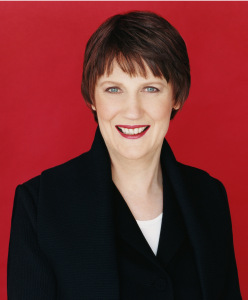 | UNDP
| UNDP By 2030, sixty per cent of the global population will be in cities. We can achieve the SDGs if our cities become inclusive, sustainable, and resilient. Photo credit: UNDP
By 2030, sixty per cent of the global population will be in cities. We can achieve the SDGs if our cities become inclusive, sustainable, and resilient. Photo credit: UNDP






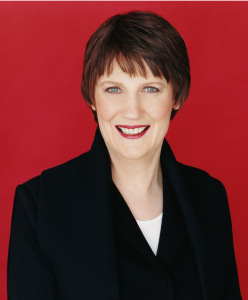
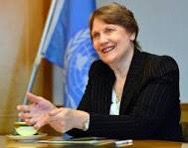


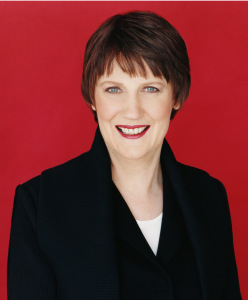
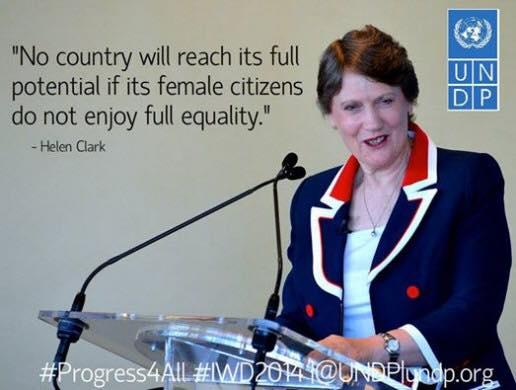






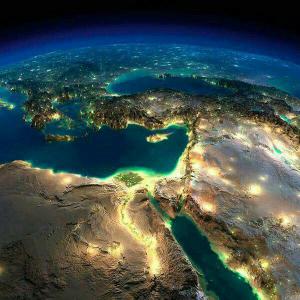




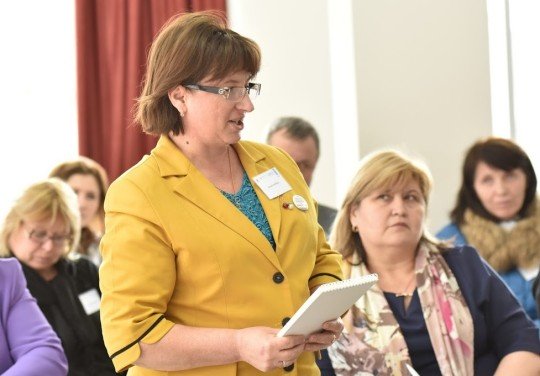
 While women make up nearly half of political party membership, the percentage of women members who are active in party structures declines as the geographic level increases. Source: OMNIBUS CBS-AXA, December 2015
While women make up nearly half of political party membership, the percentage of women members who are active in party structures declines as the geographic level increases. Source: OMNIBUS CBS-AXA, December 2015




